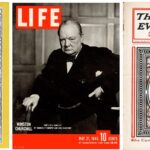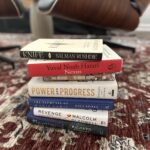A new report came out today from the weapons inspectors in Iraq. The verdict: no weapons of mass destruction. The New York Times calls the report “the starkest portrayal yet of a vast gap between the administration’s prewar assertions and what a 15-month inquiry has concluded were the facts.”
“The report by Charles A. Duelfer said the last Iraqi factory capable of producing militarily significant quantities of unconventional weapons was destroyed in 1996,” writes Douglas Jehl in today’s Times. “The finding amounted to the starkest portrayal yet of a vast gap between the Bush administration’s prewar assertions about Iraqi weapons and what a 15-month postinvasion inquiry by American investigators has concluded were the facts on the ground. At the time of the American invasion, Mr. Duelfer concluded, Iraq had not possessed military-scale stockpiles of illicit weapons for a dozen years and was not actively seeking to produce them.”
However, according to the report’s key findings, Saddam certainly wanted to have such weapons. “Iraq Survey Group (ISG) judges that events in the 1980s and early 1990s shaped Saddam’s belief in the value of WMD,” said the report. “In Saddam’s view, WMD helped to save the Regime multiple times. He believed that during the Iran-Iraq war chemical weapons had halted Iranian ground offensives and that ballistic missile attacks on Tehran had broken its political will. Similarly, during Desert Storm, Saddam believed WMD had deterred Coalition Forces from pressing their attack beyond the goal of freeing Kuwait. WMD had even played a role in crushing the Shi’a revolt in the south following the 1991 cease-fire.”
The report indicates that sanctions were working. Saddam understood that with such sanctions in place, he would never be able to develop the weapons systems he wanted. Also, the report indicates he wanted to exploit certain programs, including the oil-for-food programs, in order to have sanctions lifted, and once accomplished, to begin work on long-term weapons development.
“Mr. Duelfer said in his report that Mr. Hussein never acknowledged in the course of the interrogations what had become of Iraq’s illicit weapons,” writes Jehl. “He said that American investigators had appealed to the former Iraqi leader to be candid in order to shape his legacy, but that Mr. Hussein had not been forthcoming.
“The official familiar with the report said that interviews with other former top Iraqi leaders had made clear that Mr. Hussein had left many of his top deputies uncertain until the eve of war about whether Iraq possessed illicit weapons. The official said that Mr. Hussein seemed to fear a new attack by Iran, whose incursions into Iraq during the Iran-Iraq war of 1980-88 were fended off by Baghdad only with the use of chemical munitions fired on ballistic missiles.”
I am curious to see how each camp plays this latest news. Clearly the current administration pushed for war on the argument of the presence of such weapons when they weren’t even sure whether they were there. And if they argue that perhaps they were there when we invaded, it only opens them to questions about how they executed the war–allowing such dangerous systems to pass safely between unknown borders. It makes me feel safe.





